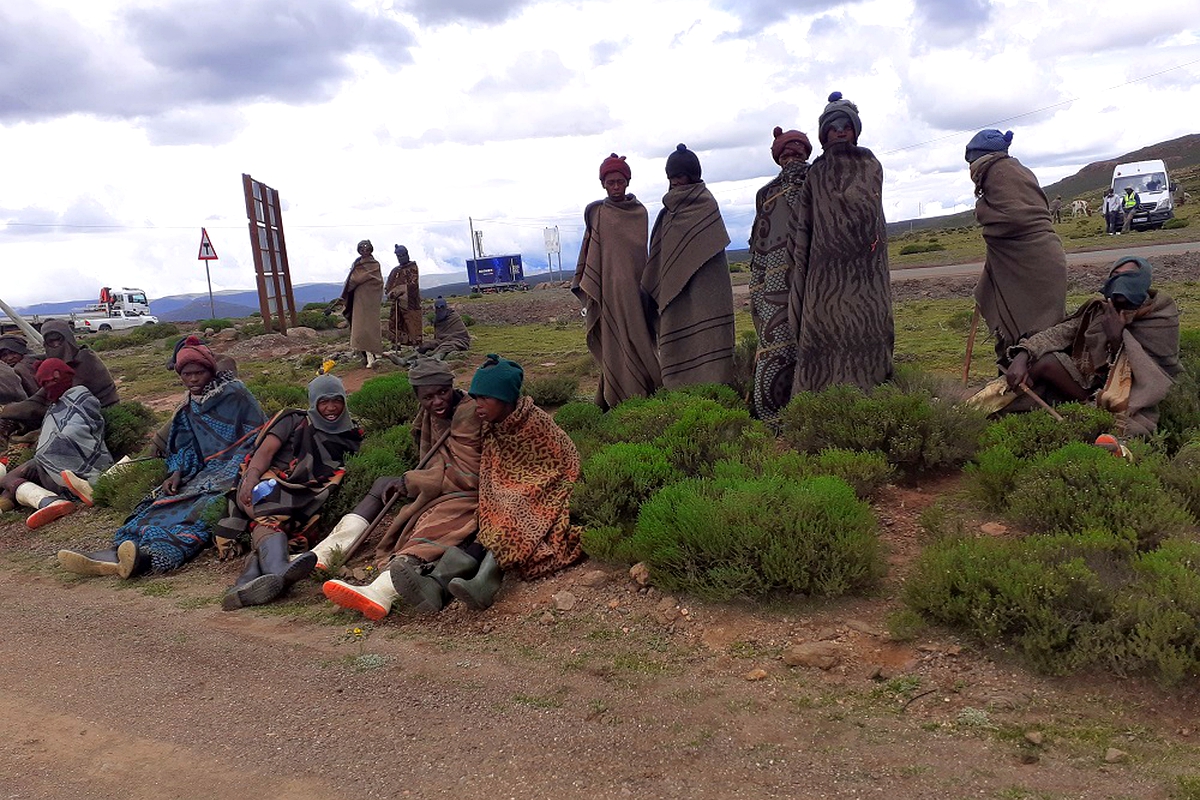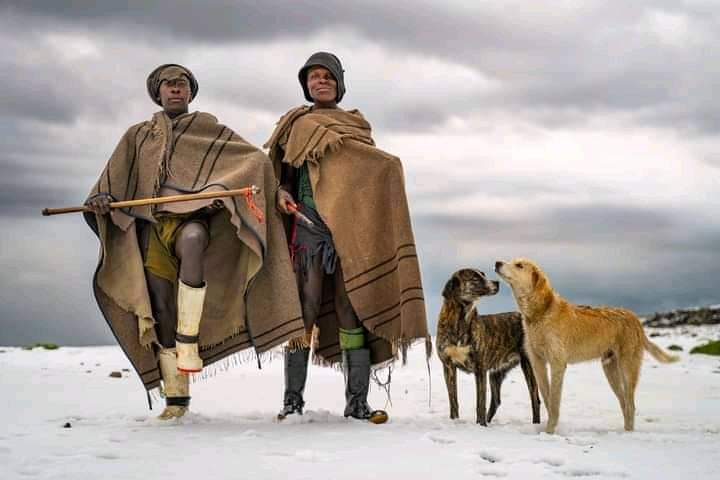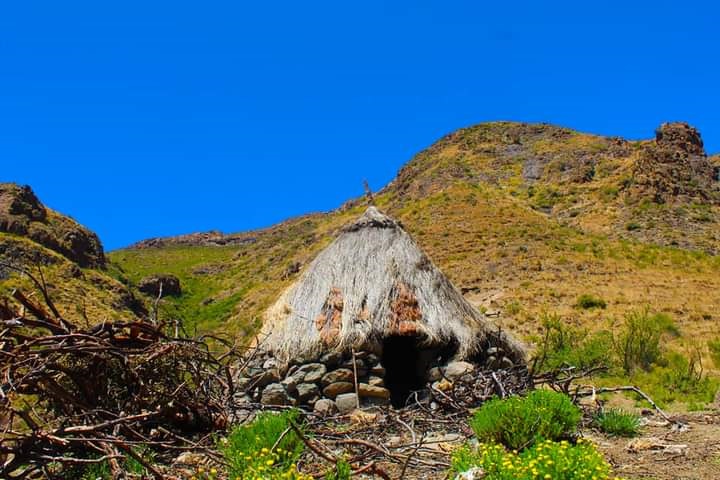IN Lesotho it has become the norm that if poverty strikes in a family, the first-born male child assumes the role of the family provider, regardless of his age and level of education.
society
June 14, 2021
KABELO MASOABI
4 min read
Only the fittest survive mountains winters - Herders

A group of herders by the roadside somewhere in Mokhotlong
For the male children who are not in school, they are compelled to seek employment as livestock herders, either locally or in the neighbouring farms of South Africa.
They normally work on a contractual basis for a minimum of 12 months.
Upon completion of the 12-month contract, each herder is remunerated with a live cow or twelve sheep (an equivalent of a live cow) to either convert into cash through selling or rear to accrue personal livestock.
The economic perspective is that, livestock herding is a source of livelihood that families can readily tap on when they become financially compromised.
A PhD study (Pitikoe, 2016) shows that livestock herding also caters for economic needs and is practiced in two ways by Basotho.
The herders either commute daily from home with the livestock to the veld in the morning and return later in the evening or temporarily relocate from their homes to spend some time in the cattle posts with the animals.
The cattle posts are further divided into two categories in order to accommodate the climatic changes.
In 2015, Sebitia Lekema of Malefiloane in one of the remotest
mountain areas east of Mokhotlong, lost both his parents when he was aged 15, a situation that compelled him to become a child labourer herding a flock of sheep in the mountains of Mokhotlong.
His unemployed uncle hired him out to be a herder in order to ensure the survival of his three younger siblings.
He has been doing the job since then and is clearly enjoying the life with all its hardships.
Although he seems to have settled in with the binding circumstances, extreme weather conditions in the mountains where his motebo (cattle post) is situated remain his number one enemy.
He however, has to turn his situation into a dream by becoming a champion of livestock wealth.
“We eat lots of meat to keep our bodies warm, especially mutton. We do not have heavy blankets like the people in the village or town. The light blankets we wear give us the flexibility to run after livestock and thieves whenever need arises. We also collect herbs that fight flu and other ailments,” Lekema says.
Herders also connect with other people through selling herbs to passing tourists.
In this context, social capital plays an important role as a network resource for the herders.
Although Lekema underscores the comfort in the simple life he lives and that in the highlands, pastures are much greener for the livestock in comparison to the lowlands, he notes that there are many possibilities that things can go awry at any given moment.
For instance two years ago, a fellow herder lost his life after he was trapped in the snow for two weeks.
Even though herders nowadays carry cell phones, Lekema says his deceased friend was unable to raise alarm for help because his battery had died.
“Our masters provide us with cell phones for easy communication. But the problem is we do not have means to recharge our batteries as often as we have to. So in times of disaster like heavy snow, we are normally unable to call for help and in most cases the results are disastrous.

Herders daring the snow in winter
Enjoy our daily newsletter from today
Access exclusive newsletters, along with previews of new media releases.

Cattle post located up in the mountain
“Our preparation for winter includes collecting firewood as early as January. We also have our own traditional ways of predicting the weather, but recent changes in weather patterns have altered a lot of things,” says another herder, Tlake Seahlolo, 22.
A fortnight ago, three herders were trapped by heavy snow for five days in Mokenafatše near the Sani Pass in Mokhotlong.
Several of their sheep which were recently sheared were frozen to death because help was not provided on time.
The Mokhotlong District Administrator Serame Linake says in such complex situations, only army helicopters are able fish the herders out of the disastrous circumstances, provided the weather allows the choppers to fly over the tall mountains.
This is according to information Mr Linake was provided with by the Lesotho Defence Force (LDF).
Similar reports of herders trapped in the snow were also received from other mountainous districts such as Qacha's Nek.
On June 1, the highlands of Lesotho woke up to a full-swing winter wonderland.
Since then, the mountains have time and again been covered with blankets of white snow.
Despite regular precautionary daily weather forecasts provided by the Lesotho Meteorological Services (LMS) via various media platforms, inability to attain information and soaring weather conditions continue to put a strain on herders.
Weather reports show that temperatures in the lowlands can reach as high as 32 °C in summer and plunge to −7 °C in winter.
In the highlands, the temperature range is much wider and readings below −18 °C are not unusual.
Frost occurs widely in winter, when the Maluti Mountains are usually snow-capped.
Tailored for you



